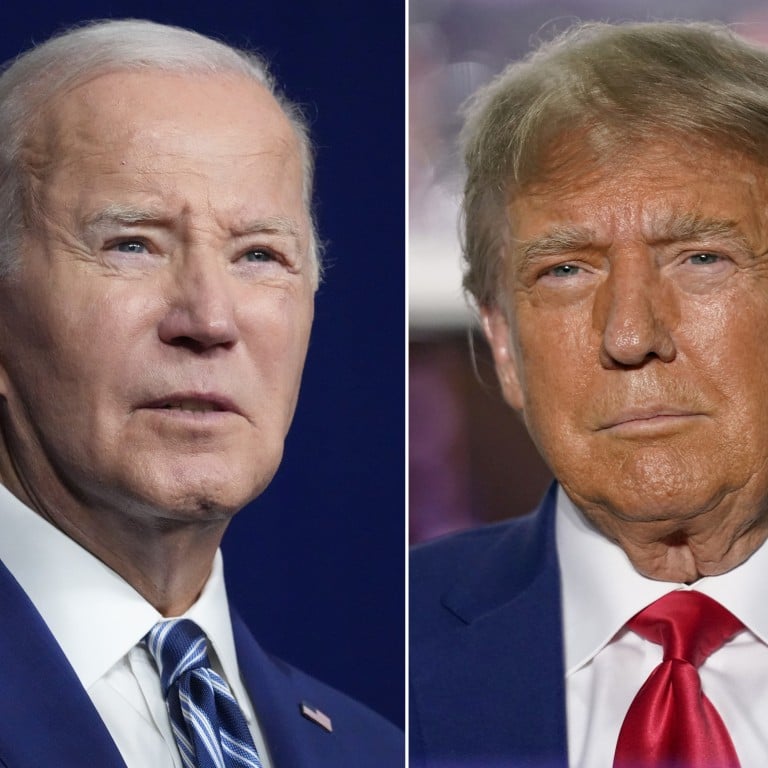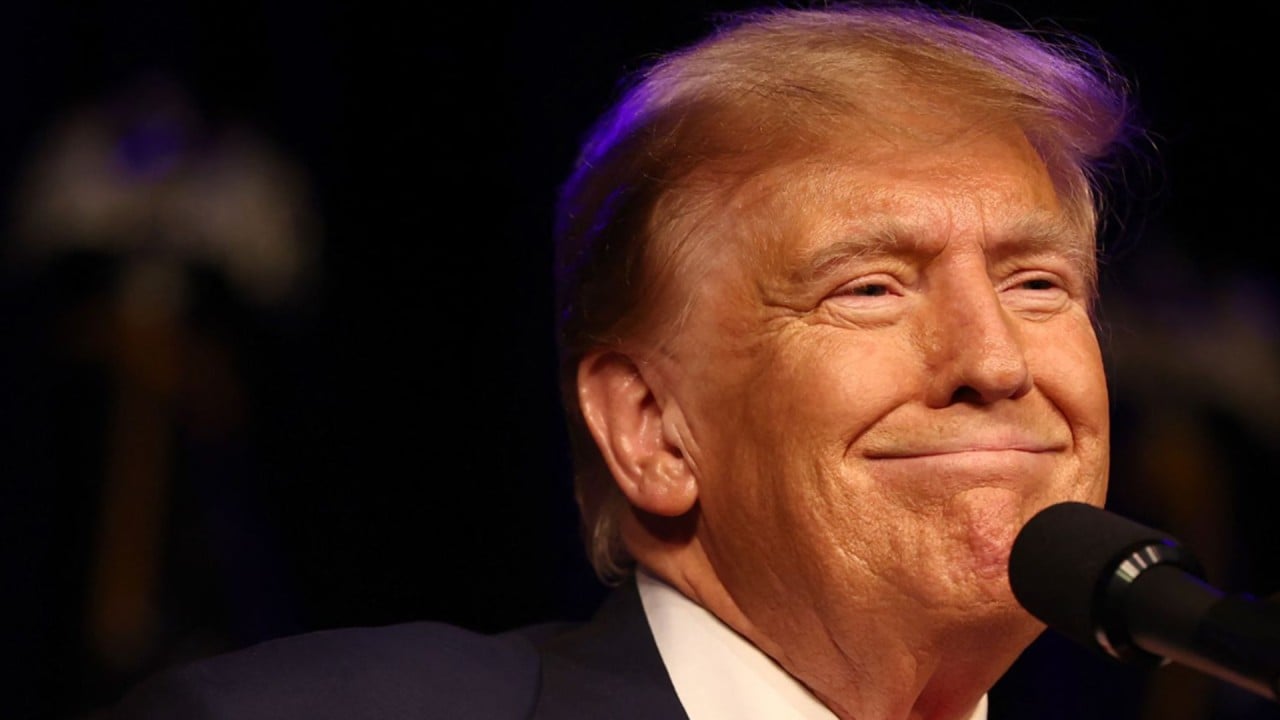
US Presidential election 2024: Biden has a 1 point lead over Trump, Reuters/Ipsos poll shows, but many voters undecided
- The Reuters/Ipsos poll found 39% of registered voters would vote for Biden, a Democrat, if the election were held today, compared with 38% who picked Trump
- Many remain undecided, with 11% saying they would vote for other candidates, 5% saying they would not vote, and 7% saying they did not know or did not answer
Some 39 per cent of registered voters in the one-week poll, which closed on Wednesday, said they would vote for Biden, a Democrat, if the election were held today, compared with 38 per cent who picked Republican former President Trump. Biden’s lead was within the survey’s 1.8 percentage point margin of error.
Many voters remain undecided, with 11 per cent saying they would vote for other candidates, 5 per cent saying they would not vote, and 7 per cent saying they did not know or refusing to answer.
Biden-Trump sequel: a look at US presidential rematches through history
The poll, which surveyed adults nationwide, included many ways to measure support for Biden and Trump, 77, and most pointed to a close race.
It appeared that Kennedy could siphon similar shares of votes from Trump and Biden. When poll respondents were asked to choose between Trump and Biden without any other options, Biden led 50 per cent to 48 per cent among registered voters, with 2 per cent refusing to answer the question.
Biden, Trump clinch nominations, kicking off US presidential rematch
Only about 37 per cent of Haley’s supporters plan to vote for Trump now that she has dropped out of the Republican contest, the poll found. Some 16 per cent said they would vote for Biden and the rest said they would vote for someone else or not vote at all.
The Reuters/Ipsos poll collected responses online nationwide from 4,094 US adults, including 3,356 registered voters. It had a margin of error of 1.8 per cent for registered voters and 1.7 per cent for all respondents.


